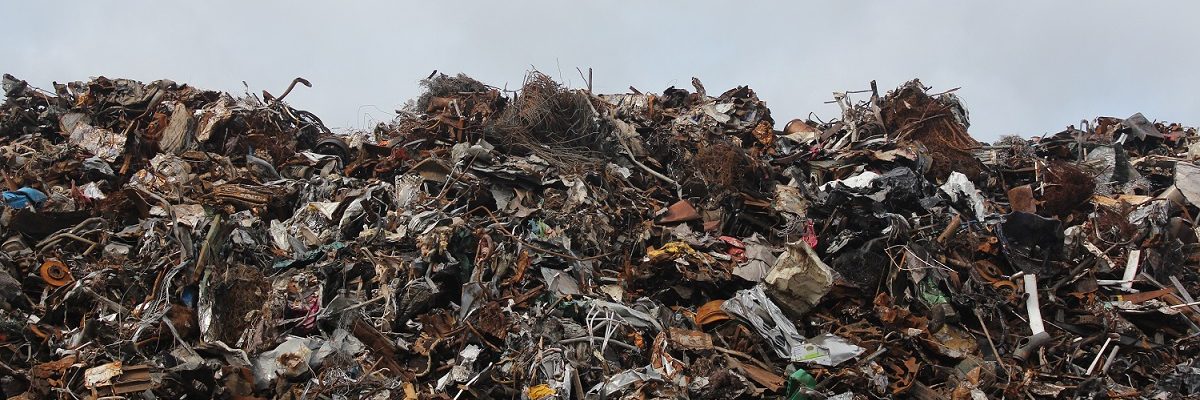Blog: Plastic waste management in Hyderabad, India – From a linear to a circular economy

Anuradha Adhikari of ICLEI South Asia describes how the pilot installation of ‘reverse vending machines’ for plastic in a South Indian city is providing multiple environmental and community benefits.
Plastics, more precisely single-use plastics, have invaded our lives in a pervasive manner, appearing everywhere from supermarket shelves to even the deepest ocean. A 2019 survey found that plastic pollution was perceived to be one of the top three global concerns, next only to climate change.
However, I think that plastics pollution and climate change are just two sides of the same coin; every single piece of plastic is produced from fossil fuels, and greenhouse gases are emitted at each stage of its life cycle, right from extraction and transport of fossil fuels, plastic refining and manufacture, the overall management of plastic waste, and also at the end of its life, whether it be mechanical recycling, plastic to fuel processing, incineration or landfill.
The giant share of unmanaged plastic waste is either burnt, dumped or dropped as litter. Considering the prevailing business-as-usual scenario, it is estimated that by 2030, greenhouse gas emissions from plastics could reach 1.34 gigatons per year. And let us not forget the increase in plastic waste following the Covid-19 pandemic. This certainly calls for rethinking, redesigning and reinforcing measures in line with the circular economy to mitigate the climate, environmental and health impacts of plastic waste.
This is the story of the miniscule amount of managed plastic waste – and how its management could point to a more sustainable way in the future.
Plastic waste: a scourge in Hyderabad
Hyderabad, a major metropolitan city in India, is reeling under the weight of plastic waste. As per a survey undertaken by ICLEI South Asia in 2018, almost 20% of the waste generated in Hyderabad is plastic. Residential areas alone generated around 365 tons per day of plastic waste, which could increase to 495 tons per day by 2025 if no mitigation measures are undertaken.
Of the total plastic waste generated in the city, as much as 7% comprises PET plastic, largely bottles for mineral water and cold drinks, among others. The used PET bottles were burnt, openly dumped and littered, while some also found their way into lakes and the city’s drainage system. Making the situation even worse, the informal sector and street vendors were found to be refilling the used PET bottles with water and selling them, thereby raising health concerns.
Economic opportunity
However, it is undeniable that PET bottles are one of the most economically valuable proportions of plastic waste. They are in great demand in the mechanical recycling industry due to their ease of conversion into a wide range of recycled products.
With the objective of streamlining the collection, transportation and recycling of PET bottles in Hyderabad, ICLEI South Asia piloted the installation of reverse vending machines (RVMs) with the support of the Institute for Global Environment Strategies Centre Collaborating with UNEP on Environmental Technologies, and the United Nations Environment Programme – International Environmental Technology Centre, Japan. The locations for installing the RVMs were selected on the basis of several factors, including high footfall areas.
Areas with a large number of people in circulation, such as Charminar and the Mahatma Gandhi Bus Station (an interstate bus terminal) were identified as the most viable locations. Awareness generation campaigns were held to encourage citizens to deposit PET bottles into the RVMs and earn rewards in the form of cashbacks via mobile payment platforms and discounts on bus tickets.
Bottle’s journey to a new life
PET bottles undergo pre-processing inside the machine, and are subsequently transferred to the processing site to be converted into textile fibres that can be used to manufacture clothing items such as t-shirts and caps. The whole process promotes the principles of circular economy by recycling plastic waste to produce new products, influencing consumer behaviour and developing better waste management practices at the community level.
As certified by the RVM operator, during the pilot implementation period of three months, 2,126 PET bottles were collected, equivalent to 32 kg of plastic flakes, which saved 159.5 litres of water, 1.9 litres of fuel, 0.02 cubic yards of landfill space, and enabled almost 0.08 tons’ reduction in carbon dioxide emissions.
Shift to a sustainable pathway
The commissioning of the RVM helped to demonstrate a measure to reduce the use of virgin plastic, thereby contributing to a shift towards circular economy. It has saved landfill space, reduced the cost of pre-processing plastic, optimised the efficiency of recycling units, and reduced dependency on petroleum, depletion of natural resources and harmful emissions.
It has also highlighted the fact that any solution that manages plastic waste efficiently is a strong strategy for addressing the climate impacts of the plastic lifecycle. Such holistic measures, based on the principles of waste hierarchy and circular economy, are necessary to reduce harmful emissions associated with plastics.



